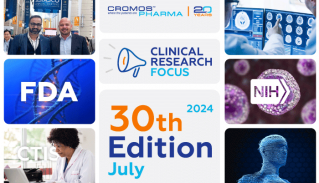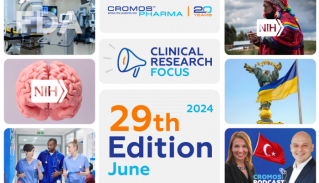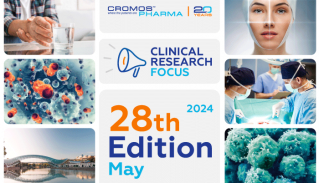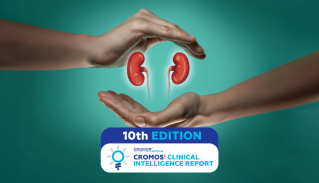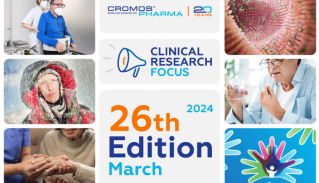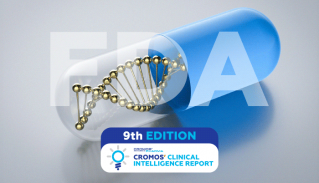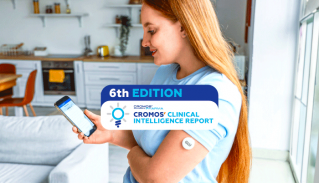
Key Highlights in Clinical Research and Healthcare for 2023
As we bid farewell to 2023, a significant year in clinical research, we reflect on the transformative strides and pivotal trends that have shaped the landscape of medical research. This article explores some of the significant developments that have unfolded, bringing fresh insights and innovations to the biotech and pharma community.
 1. Revision of the EU Pharmaceutical Legislation
1. Revision of the EU Pharmaceutical Legislation
In April 2023, the European Commission issued a groundbreaking revision of EU pharmaceutical legislation, a monumental shift after more than two decades, proposing the most ambitious changes that will have a lasting impact on the drug industry. The reform, consisting of a new Directive and Regulation, aims to establish a comprehensive regulatory framework for all medicines. Despite praise from patient support groups, the pharmaceutical industry has criticized the reform, particularly the reduction in regulatory protection, viewing it as a significant threat to the future of European drug development.
2. Revision 3 of ICH-GCP
In May 2023 EMA has announced an upcoming update in ICH-GCP (R2), that is expected to be published in 2024. The changes to ICH-GCP in R3 are comprehensive, adding much more clarification to the design and conduct of clinical trials, in alignment with the evolution of clinical trials. More clarity has been given to the conduct of decentralized clinical trials, and a broader definition given to the professionals who can make medical decisions and provide care to trial participants.
3. Regulatory Focus Shifts
In June 2023 the EMA has published a report on the use of real-world evidence (RWE) in regulatory decision-making. The report highlights the potential of RWE to complement evidence from clinical trials, supporting pre-authorization and post-approval assessments. RWE plays a crucial role in the latest clinical trials by providing valuable insights into how drugs perform and are used in real-world settings. While RWE is well-established in pharmacovigilance, its use in earlier stages of drug development is less common. EMA and the European Medicines Regulatory Network (EMRN) aim to establish a sustainable framework for RWE use throughout the product lifecycle, with ongoing pilot programs exploring its applicability.
4. AI Integration in Healthcare
In 2023, healthcare witnessed a growing prominence of Artificial Intelligence (AI). In October the FDA has introduced a fresh initiative in the form of the Digital Health Advisory Committee to delve into the complex scientific and technical aspects of digital health technologies (DHTs), including artificial intelligence, virtual reality, wearables, and more. The committee aims to provide expertise and insights to help the FDA regulate these technologies effectively.
The EMA in its turn has released a reflection paper outlining its thoughts on integrating AI in supporting the progression, oversight, and utilization of human and veterinary medicines. This document covers AI’s application from drug discovery to post-authorization.
5. Lessons learned from COVID-19
In December 2023 the EMA issued a report highlighting the challenges faced during the COVID-19 pandemic and the European Medicines Agencies Network’s (EMRN) response to it. The report suggests improvements in setting up rapid clinical trials, gathering diverse real-world data, and expanding the pool of experts for scientific assessments during healthcare crises. Recommendations have been implemented, aligning with EMA’s proactive public health role, and will inform future updates to the EMRN strategy.
6. The FDA approved the first over-the-counter oral contraceptive and a pill to combat postpartum depression
The FDA greenlighted a nonprescription birth control pill for the first time in July 2023. Opill is expected to become available at pharmacies and grocery stores across the United States in early 2024. Weeks later, the FDA approved the first postpartum depression pill. Zurzuvae was found in clinical trials to take effect in as little as three days, unlike other antidepressants, which can take at least two weeks.
7. Advancements in CRISPR Technology and Gene Therapies
The field of gene editing, particularly using CRISPR technology, saw remarkable progress in 2023. Notably, the FDA has granted approval for Casgevy and Lyfgenia, marking a groundbreaking milestone as the first cell-based gene therapies for sickle cell disease (SCD) in patients aged 12 and older. These approvals and multiple clinical trials in gene therapies demonstrate promising results, offering hope for patients with previously untreatable genetic disorders.
8. Alzheimer’s Breakthroughs
Because of the incredibly complicated nature of Alzheimer’s disease, a catastrophic neurodegenerative illness, progress in developing treatments has been a slow and frustrating process.. At the beginning of July, the FDA granted approval to the drug Leqembi, the first Alzheimer’s medicine demonstrated to actually slow the progression of the pernicious disease – by about 27% after 18 months of treatment.
9. New Medication for Chronic Weight Management
in November 2023 the FDA has granted approval to Zepbound injection for chronic weight management in adults with obesity or overweight. This approval addresses a critical medical need as obesity affects about 70% of American adults. Nevertheless, some providers express reservations about the long-term effectiveness and costs of obesity drugs and advocate for a focus on diet and lifestyle interventions.
10. Phasing out of Animal Testing for Next Generation Drugs
Since 2023 new medicines need not be tested in animals to receive the FDA approval. The FDA Modernization Act 2.0 points out the technologies that have the potential to replace the use of animals for drug testing, such as in vitro models, organ chips, microphysical systems and computer models. Pharmaceutical companies will now have the option to use alternative methods of testing drugs before they enter human trials. The usage of animals should be curtailed to research where it is scientifically necessary and should require special assessment under strict ethical guidelines.
In 2024, we’re set for more research and discoveries to better understand diseases and improve its treatments. Process improvements and innovative approaches will continue to play a key role in advancing clinical medicine.












